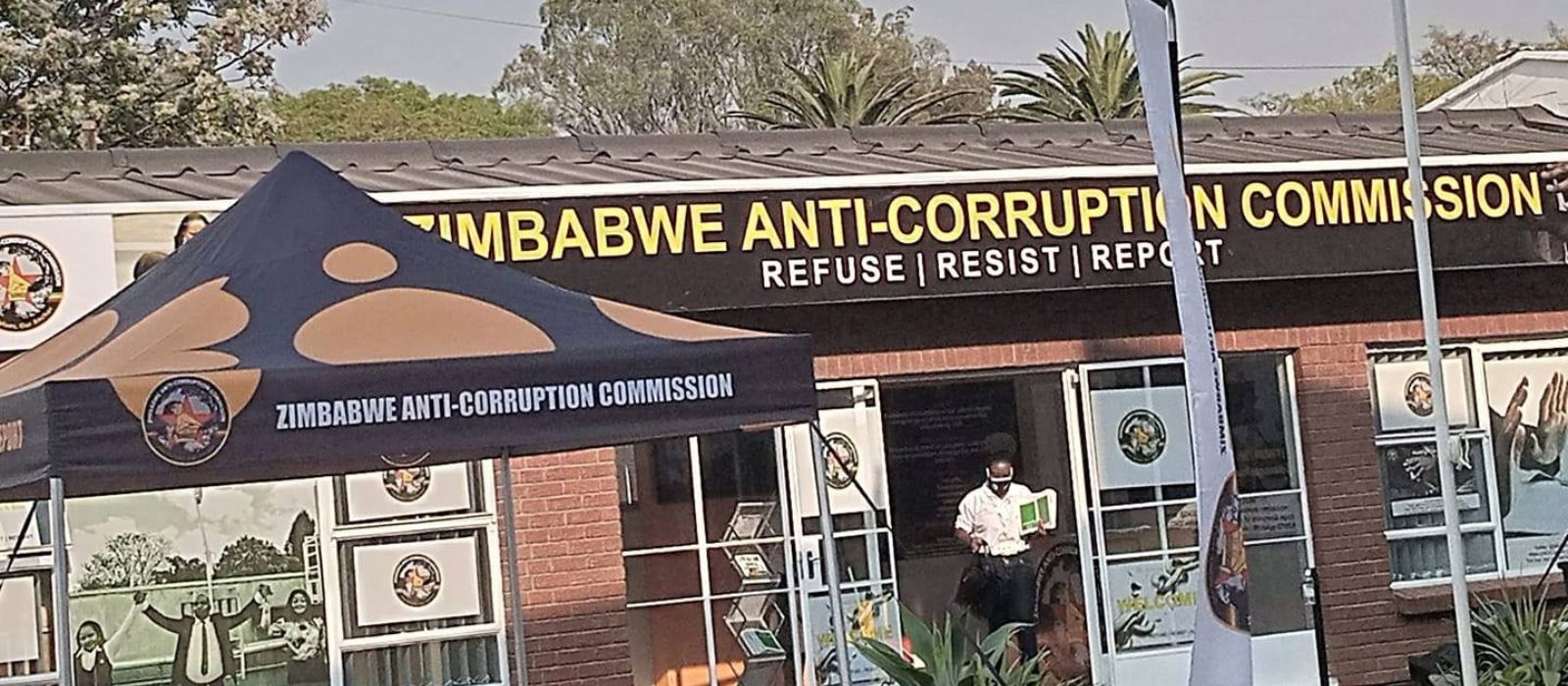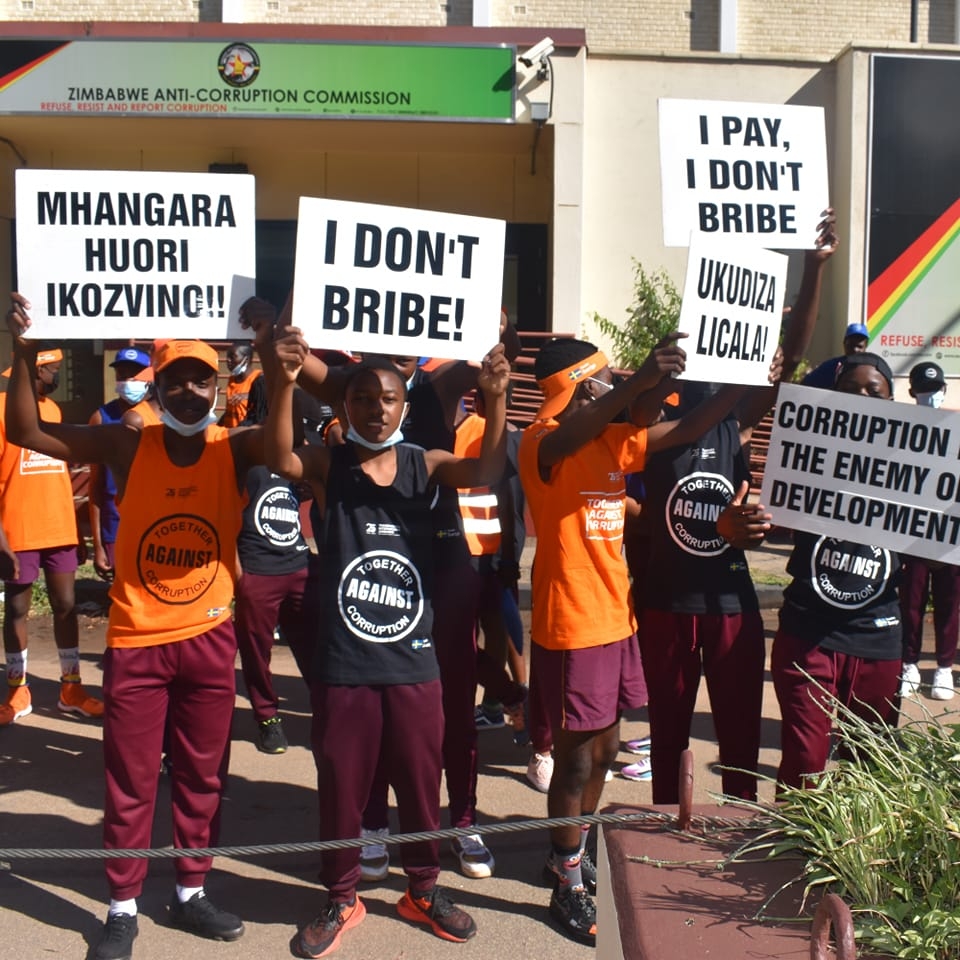
In Zimbabwe, anti-corruption efforts seem to be improving in recent years under the second republic. The Public Perception Index by Transparency International and US Government Treasury reports have expressed concern about the anti-corruption efforts in Zimbabwe. Corruption can be difficult, complex, and may result in political suicide for those in power who want to eradicate it.
Corruption has grown to become a national security concern in many countries globally, threatening democracy, transparency, economic, and social development. In Africa, it has endangered peace and security. Fighting corruption is challenging and requires collaborative efforts from every individual, organization, business leader, presidium, minister, investor, and citizen. While everyone shares the responsibility, certain tasks are specifically assigned to authorities such as the Zimbabwe Republic Police, SACU, ZACC, and the National Prosecution Authority.
We need to promote collaborations and partnerships to increase global efforts in fighting corruption and encourage governments, non-governmental organizations, sponsors, funders, and donors to support long-term anti-corruption programs. Programs like the Transparency, Integrity, and Accountability Programme (TIP) in South Africa by Deutsche Gesellschaft für Internationale Zusammenarbeit (GIZ) GmbH and USAID’s governance-related programs in Zambia could significantly improve Zimbabwe’s anti-corruption efforts.
Capacity Enrichment:
The capacity of the Zimbabwe Anti-Corruption Commission (ZACC) is improving compared to ten years ago, although it still has one of the lowest numbers of employees in anti-corruption compared to other regional countries. For example, South Africa has multiple institutions or agencies interrelated to fight corruption, such as the Directorate for Priority Crime Investigations (Hawks), Special Investigation Unit (SIU), National Prosecution Authority (NPA), Investigating Directorate of the NPA, and the Asset Forfeiture Unit (AFU). Almost every government department in South Africa has a Forensic Investigations/Anti-Corruption Department where necessary. There is a need to increase or supplement personnel in anti-corruption efforts in Zimbabwe.


The private sector in Zimbabwe remains largely silent on anti-corruption efforts, with little public participation or support for ZACC or domestic funding for homegrown anti-corruption non-profit organizations. However, some businesses blame the government for not doing enough. The relationship between the government and the private sector needs revitalization, as poor relations can be traced back to the BACCOSSI days when then-governor of Zimbabwe, Dr. Gideon Gono, monitored and evaluated retailers and wholesalers. This created tension, as they were accused of sabotaging the economy.
Meaningful engagements or collaborations are met with hesitation, as those who were operational managers are now in C-Suite positions and may be reluctant to fully embrace government efforts. Feuds resurface, such as in October 2023 when a large retailer in Zimbabwe expressed concerns to the government and faced public humiliation by a senior member of the finance ministry. In my analysis, both individuals raised valuable points that need addressing, though the platform was not ideal.
The Zimbabwean government has made significant efforts in recent years to combat corruption through various reforms and initiatives. The establishment of ZACC in 2004 marked a pivotal milestone in the country’s anti-corruption endeavors. Despite limited action from 2004 until the second republic took office, there have been several notable developments and practical results in the fight against corruption.
ZACC has faced backlash from the public for its failure to prosecute, yet it is important to highlight notable developments over the past five years:
- National Anti-Corruption Strategy: The government has developed a comprehensive strategy outlining long-term goals and targeted interventions.
- Prosecution of High-Level Officials: ZACC has shown commitment to holding high-level officials accountable, such as the 2019 arrest of former Tourism Minister Prisca Mupfumira on corruption charges.
- Asset Recovery: Efforts to recover assets acquired through corrupt means have been prioritized, with ZACC successfully securing forfeiture of such assets.
- Whistleblower Protection: The government is working on a law to protect whistleblowers, encouraging individuals to report corruption without fear of reprisal.
- Public Awareness Campaigns & Engagement: Campaigns educate citizens on the detrimental effects of corruption and the importance of reporting it. There are also awards for journalists in anti-corruption scheduled for later this year.
- Enhanced Anti-Corruption Legislation: The government has enacted or amended legislation to strengthen the legal framework for combating corruption, including the Criminal Law (Codification and Reform) Act and the Money Laundering and Proceeds of Crime Act.
- Anti-Corruption Task Forces and Increased Manpower: Specialized task forces have been established to tackle specific types of corruption, despite budget limitations.
- International & Local Collaboration: Zimbabwe engages in international collaboration to combat cross-border corruption and money laundering.
- E-Government Initiatives: The implementation of e-government initiatives reduces opportunities for corruption by automating processes.
- Asset Declaration by Public Officials: Mandating public officials to declare assets promotes transparency and accountability.
- Training and Capacity Building: ZACC invests in staff training to enhance their investigative and prosecutorial capabilities.
- Public Procurement Reforms: Reforms enhance transparency and accountability in government contracts and tenders.
- Anti-Money Laundering Measures: The government implements stringent regulations to prevent the flow of illicit funds.
- Anti-Corruption Hotline: The hotline provides a channel for anonymous reporting of corruption, resulting in increased reporting and investigations.
- Integrity Committees: These committees monitor and enforce ethical standards within the public sector.
- Anti-Corruption Education in Schools: Education in schools aims to instill values of integrity and ethics in the younger generation.
- Civil Society Engagement: The government engages civil society organizations in the anti-corruption fight, leveraging their expertise and advocacy.
- Code of Conduct for Civil Servants: Clear guidelines for ethical behavior are set, with penalties for those found engaging in corrupt practices.
These practical results illustrate the Zimbabwean government’s commitment to combating corruption and promoting good governance. While challenges persist, these efforts demonstrate a positive trajectory in the country’s anti-corruption endeavors. More is needed from the Zimbabwean government, business sector, and civil society organizations. We need to embrace a culture of unity and collaboration for the development of Zimbabwe and the eradication of corruption.



